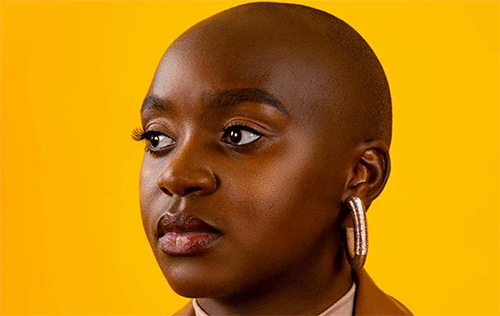In October 2021, the parliamentary standing committee on Gender Equality, Social Development and Family Affairs finally began the process of conducting public hearings on the legalisation/non-legalisation of the abortion law some (25) years since the first abortion draft bill was presented in parliament in 1996.
The then minister of health and social sciences, late Dr Nickey Iyambo, released a draft: Abortion and Sterilisation Bill for public consultation. The bill sought the legalisation of abortion on request within the first trimester of pregnancy. Reports by The Namibian from (1999) state that the Ministry of Health held consultations with the churches, radio phone-ins and letters, while national consultations took place in Windhoek and at Otjiwarongo.
Various stakeholders and groups had been invited to participate, present and/or proffer solutions on the many social scourges, which are dovetailed by the abortion law and the cumbersome process to obtain a legal abortion. It’s worth mentioning the act to once again, revise the law and the process to access this reproductive health right: According to the Legal Assistance Centre (LAC), to obtain a legal abortion, several requirements must be met:
Two medical certificates: Two doctors must each provide a written certificate stating that they believe the pregnancy is the result of rape. One of the doctors must be a doctor employed by the State. At least one of the doctors must have been practising for two years. Neither of the doctors who give the certificate can perform the abortion.
A certificate from a magistrate: A certificate issued by a magistrate saying that the pregnancy likely resulted from rape and that the woman has either laid a charge with the police or showed a good reason for failing to lay a charge.
A certificate from a psychiatrist has required in the case that the pregnancy is a threat to the mental health of the mother.
Permission from a medical superintendent of a state hospital is required; abortions may only be performed in a state hospital.
With the above, it’s probably obvious to gauge and agree on why the parliamentary standing committee would embark on hearings centred and positioned as the ‘legalisation/non-legalisation’ of abortion as the process to obtain an abortion clearly and grimly demonstrates that the law is virtually impossible and impractical to access, thereby rendering the law altogether illegal.
In that same breath, it invites clear opposition sides to defend and state a case for why the law must be legalised or not, to be exact, the church groups or so-called, ‘pro-lifers’ and the pro-choice movement.
It remains unclear why the church and its religious tropes receive so much airtime and provide counsel on matters fundamental to the course of social and legal justice in Namibia, so already this is the entry point from which bias may be detected on the part and conduct of the parliamentary standing committee.
The important functions of a parliamentary standing committee cannot be overstated, let alone the important role of gender equality, social development and Family Affairs. As highlighted by parliament, these functions include, inter alia:
Address gender issues across party lines and promote gender equality to improve the status of women in Namibia.
Review all Bills and Acts that discriminate against women and children.
Scrutinise and review the implementation of Bills and Acts that discriminate and negatively impact the lives of women and children.
Keeping the above in mind, the first public hearings were held in the Erongo and Omaheke Regions concurrently. In Walvis Bay (Erongo), the public hearings were held at the Duinesig High School.
Scores of religious groups and community members, including pro-choice activists, attended the hearings in anticipation to submit and express their views, though it seems, the religious groups were granted full visibility and extended airtime to express their anti-choice stance, and this had been evidenced by videos which circulated social media on the disruption pro-choice activists received without much intervention by the committee members who were facilitating the hearings.
In light of the above, the committee interrupted the presentations made by pro-choices activists without much control, either, over the disruptive crowd (religious groups), which muffled the content and drained the information of the activists.
Even more, the committee requested the police to interfere with the presentations of the pro-choice activists (who were few in comparison to the religious groups), and in the process, demanded that they be escorted out of the venue without any practical recourse.
It was later observed that the committee had conducted internal votes within the hearings, which is unconstitutional at best and reckless – to say the least.
One wonders then, whether the committee had established rules and a solid framework on how to conduct and facilitate the hearings if already the first public hearings set an extremely bad precedent on how the committee maintains neutrality and maturity in the process.
In fact, what is the rest of the public to expect and experience in smaller towns where the majority may even appeal to the traditional value systems of committee members who have already demonstrated how easily influenced they are by (larger) religious groups and how temperamental they may be towards minority pro-choice activists.
The committee, through its illustrious functions, is surely obliged to conduct the hearings in a manner that is fair and seeks to engender the many different principles derivative from its roles, and that is fundamental to advance the human rights of women and children, et al.
Anything else outside of this framework proves and exposes the committee to be biased, and as a result, limits the scope and principles of engagement to serve an agenda that may lead to questionable outcomes, possibly even affecting the equal status and standing of women in the end.
Ndiilokelwa Nthengwe is an intersectional gender justice activist and author.
Twitter: Ndiilo_Nthengwe
Facebook: Ndiilokelwa Nthengwe
Instagram: ndiilo_n


